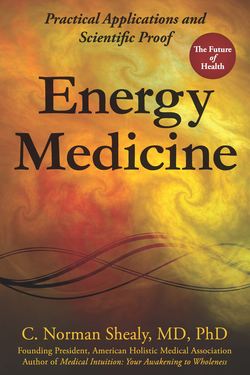Читать книгу Energy Medicine - C. Norman Shealy - Страница 37
На сайте Литреса книга снята с продажи.
Parapsychology, Extrasensory Perception, and Psychokinesis
ОглавлениеParapsychology is perhaps one of the most debated and reviled subjects in the scientific world. The term parapsychology was coined in 1889 by philosopher Max Dessoir. It was then adopted in the 1930s by J.B. Rhine to replace the term “psychical research.” The Society for Psychical Research, founded in London in 1882, included a number of well known philosophers and scholars such as Henry Sidgwick, Arthur Balfour, William Crookes, and Charles Rachet. Studies included telepathy, hypnotism, apparitions, and ghosts.
In the United States, William James, perhaps the most famous American psychologist of all time, assisted in founding the American Society of Psychical Research in 1885. In 1911, Stanford University was the first academic university to study extrasensory perception and psychokinesis in a laboratory setting. In 1930, Duke University became the second major academic institution in the United States to engage in the critical study of extrasensory perception and psychokinesis under the guidance of William McDougall. It became most famous under Joseph B. Rhine, whose work largely dealt with statistical analysis of intuitive perception of the Zener ESP testing cards, whose symbols were intuited by his research subjects with an accuracy well above chance. He also did a great deal of work with psychokinesis (movement of physical objects with the mind alone) in determining the throw of dice. As one would expect, the experiments at Duke evoked much more criticism than they did praise. After Rhine’s retirement in 1965, the Department of Parapsychology was “separated” from the university; but the Institute of Parapsychology remained, where the Rhine Research Center continues to this day. The Parapsychological Association was created in Durham, North Carolina in 1957 and, through the energy of anthropologist Margaret Mead, the Parapsychological Association became affiliated in 1969 with the American Association for the Advancement of Science, the largest scientific society in the world.
Perhaps the most remarkable scientific work in the field of parapsychology has been done at the Princeton Engineering Anomalies Research Laboratory under the direction of Dr. Robert G. Jahn, who was Dean of the School of Engineering and Applied Science. From 1979 until its closing in 2007, the interdisciplinary staff of engineers, physicists, psychologists, and others conducted numerous experiments demonstrating significant psychokinetic effects upon a random number generator as well as work with remote viewing. In the random number generator experiments, subjects mentally altered the distribution of the random numbers in a small but highly statistically significant way. Remote viewing experiments done at Princeton confirmed similar studies that had been done at the Stanford Research Institute.
Parapsychological research has had such strong opposition from traditional academic departments that it has dwindled considerably in the last three decades. Remaining today is the Division of Perceptual Studies at the University of Virginia, Department of Psychiatric Medicine, which studies the possibility of survival of consciousness after bodily death. Incidentally, that is also the university at which Dr. Ian Stephenson conducted studies of over a thousand children who appeared to have unequivocal proof of having lived before. His work continues under the direction of Dr. James Tucker. Additionally, the University of Arizona sponsors the Veritas Laboratory, which conducts laboratory studies investigating some mediums.
In summary, parapsychology includes the study of a variety of paranormal phenomena, including:
• Telepathy is the transfer of informational thoughts and feelings between individuals without the use of the ordinary five senses.
• Precognition is sensing, seeing, hearing about future events before they take place.
• Clairvoyance which I consider to be the broadest field of intuition, essentially means obtaining information by unknown means without known facts.
• Psychokinesis is the ability to influence matter, time, space or energy.
• Reincarnation is the cycle of repeated rebirth of the soul into the physical world.
• Hauntings or ghosts are manifestations attributed to someone who is dead.
